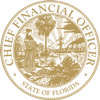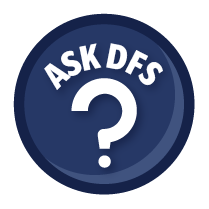In The Know - May 2022
Fraudulent Appointments
The Department has received many complaints from licensees reporting that their license has been appointed by insurers without their knowledge or consent.
Some licensees have found their MyProfile account has been accessed and changes have been made to their demographic information.
As we previously reported, some unauthorized appointments were made after the agent discussed possible association with an agency or other entity, but later chose not to contract with or be associated with them. In some cases, a license and appointment has been used to produce insurance business without the knowledge or consent of the licensee.
Because appointments are made by authorized appointing entities through the Bureau of Licensing's eAppoint electronic appointment application, we have no way to monitor appointments or otherwise "flag" an agent's license to reject an appointment or monitor appointments when asked to do so by a licensee.
The Department is working on methods to monitor suspicious activity conducted through licensees' MyProfile accounts.
Anyone can appoint a licensee if they know the information from our Licensee Search page on the internet.
The best way for licensees to check their appointment status is through our Licensee Search to verify the appointments listed are known to the licensee. If you are representing an entity but there is no corresponding appointment, you should contact that entity to correct it, as the Florida Statutes require a licensee be appointed to represent an insurer.
(See s. 626.112(2), F.S.)
If an appointment is found for an insurer or entity you do not represent, you can cancel that appointment through your MyProfile account. You should also contact AskDFS@MyFloridaCFO.com so we can verify the appointment was made in error and not as part of a fraudulent transaction.
We recommend licensees review their MyProfile account at least monthly to check for unauthorized appointments, or changes in your demographic information including your date of birth, addresses, etc. The Department recently found a situation where a licensee's MyProfile account was modified by an unauthorized party who had somehow obtained the licensee's Social Security number and date of birth. Those facts are not available from MyProfile, so it is suspected the information was obtained from the licensee during a job search or via other means. Other resources you can contact to report apparent fraudulent activity:
- the Federal Trade Commission (FTC) at ReportFraud.ftc.gov
- your State Attorney General
- your local consumer affairs office
The methods used to gain access to licensee appointment and licensing information continue to grow. We are actively working to roll out additional security measures, work with industry partners including insurers, and coordinate with law enforcement to deter and end this unlawful practice.
DO NOT share your MyProfile credentials with anyone!!
Adjusters - Prepare for Hurricane Season Now!
Emergency Adjusters
We’re reminding all lines adjusters who would like to respond to the aftermath of storm impacts to Florida this upcoming hurricane season that Emergency Adjusters must be licensed and appointed by an insurer or an adjusting firm to legally adjust insurance claims in Florida. Adjusters attempting to enter restricted areas after a storm without proper license credentials will be turned away. Anyone found adjusting claims without a license could be subject to Department enforcement action and/or criminal penalties.
Emergency adjuster licenses and appointments made last hurricane season are not valid for the 2022 hurricane season. Emergency adjuster licenses are valid for 180 days from issue and do not renew. If you plan to adjust claims in Florida during the 2022 hurricane season, you are responsible for making sure you are property licensed and appointed prior to adjusting claims.
Public Adjusting Firms and Adjusters
Hurricane season starts on June 1. The time to verify your license is in compliance is NOW - not when a storm is heading our way! This is a short checklist to ensure your license is in good standing:
- Is your license active?
- Is the firm you represent licensed by the Department. You can search for the firm's license using our Licensee Search portal.
- Are you self-appointed or appointed by an adjusting firm?
- Do you have the required $50,000 surety bond?
- Are you compliant with your continuing education requirements?
- Has a primary adjuster been designated for your firm?
- Is all contact information up-to-date? You can update it via your online secure MyProfile account.
- Are any apprentices licensed and appointed?
- Do you have your Department issued license with you?
We urge all Public Adjusters and firms to review Florida Statutes Chapter 626, Part VI and Rule Chapter 69B-220, F.A.C to ensure you understand the laws and rules which regulate your license.
Verify Before You Sell! Stay Informed - Stay Legal
Don't do it. Do not allow yourself to be recruited by a marketer touting cheaper health insurance or a guaranteed "can't lose" investment for your clients.
Many times, the sales materials will be impressive, and fabricated letters from regulators or others will give the appearance of legitimacy. Some of the warning signs of an unauthorized or bogus health plan will be the use of trade associations, unions or affinity groups that a consumer must join to be eligible for coverage. Another warning sign is the use of the phrase "Multiple Employer Welfare Arrangement" (MEWA). While MEWAs can be legitimate, they must be licensed by the state, and not many are. The marketers may claim their plan is a federal plan or an Employee Retirement Income Security Act (ERISA) plan and exempt from state regulation, which is a definite red flag.
There is always someone who has a guaranteed, get-rich-quick investment seeking out insurance professionals with an established market of clients to whom they can sell these products. These bogus investments can range from communications equipment companies to real estate and land development opportunities, which almost always turn out to be unregistered securities. These investments have been so well packaged and pitched that some agents also purchased them, as did their family members.
Too often unsuspecting agents have allowed themselves and their clients to become victims by purchasing a less expensive health plan that never paid any claims, or an investment promising high returns that turned out to be a sham. The last time there was a peak in this type of activity, numerous consumers were financially devastated as they were left holding unpaid medical bills or worthless investments. As a result, agents lost their insurance licenses and were also subjected to criminal penalties and civil lawsuits.
As an insurance professional you are responsible for conducting necessary due diligence to avoid putting your clients at risk. The excuses, "I thought it was legitimate" and "I was fooled and am also a victim," are not acceptable defenses. When verifying an insurance company’s license or whether an investment is registered, make sure that you have the correct and complete name as some scams will use names similar to licensed companies and registered investments to create confusion. Don't do it; do not allow yourself to become another victim. Verify before you sell!
The Division of Insurance Agent & Agency Services recommends the following procedures agents may use when researching whether an insurance company is properly licensed to transact insurance in Florida. By offering these guidelines, we hope to provide a valuable service to all agents and another useful tool for protecting the public.
Agents will find that, in most cases, the simple procedures outlined below will easily identify those insurance companies presently authorized to conduct insurance business in Florida. An agent may use a print-screen function to capture a printout of the company as listed on the web site and keep in their file to show they found the authorized insurance company.
Make sure you have the complete and correct name of the insurance company. Many insurance company names are very similar.
Go to https://companysearch.myfloridacfo.gov.
Enter the insurance company's name and click on the "Search" button.
Confirm that the insurance company as identified in step 1 is listed and authorized to conduct the line of business contemplated. Depending on the line of business, the following Authorization Types confer authority:
- Certificate of Authority
- Letter of Approval
- Letter of Eligibility
- Letter of Registration
- License
- Provisional Certificate of Authority
- Residual Market
Insurance companies shown with an Authorization Status as “Active” and Authorization Type as “Permit” have only begun the authorization process, and are NOT authorized to conduct insurance business.
If the insurance company is not listed on the web site or the insurance company is shown with an Authorization Type not listed above, the agent should not place insurance business with that company. Also, just because an insurance company is authorized today does not mean it will necessarily remain authorized in the future. Always check.
This web site lists authorized insurers involved in insurance business in Florida. If they are not listed on the web site, agents should assume they are not authorized.
IMPORTANT: Agents who, directly or indirectly, aid or represent an unauthorized insurance company can lose their agent licenses or face other disciplinary sanctions. Please see section 626.901, Florida Statutes, to read the laws. To alert us of possible unauthorized insurance or unregistered securities being sold please notify us at AskDFS@MyFloridaCFO.com.
The Office of Financial Regulation (OFR) oversees securities regulation. To check licensing/registration status you can call the OFR at 1-850-487-9687 or use their online search.
View the list of unauthorized entities that have had action taken against them in the state of Florida
Always go to https://companysearch.myfloridacfo.gov to search for insurance companies authorized to do business in Florida.
STLDI’s (Short-Term Limited-Duration Insurance) and Your Customers
What is an STLDI? - An STLDI is designed to fill temporary gaps in health coverage. These gaps might be a change in employment, waiting to become eligible for Medicare, when transitioning from one plan to another, or awaiting the next ACA open enrollment period. In the past, STLDI’s could only be issued for a maximum of three months of coverage. Now, these types of polices can have a contract term of up to 364 days and can be renewed for up to 36 months.

